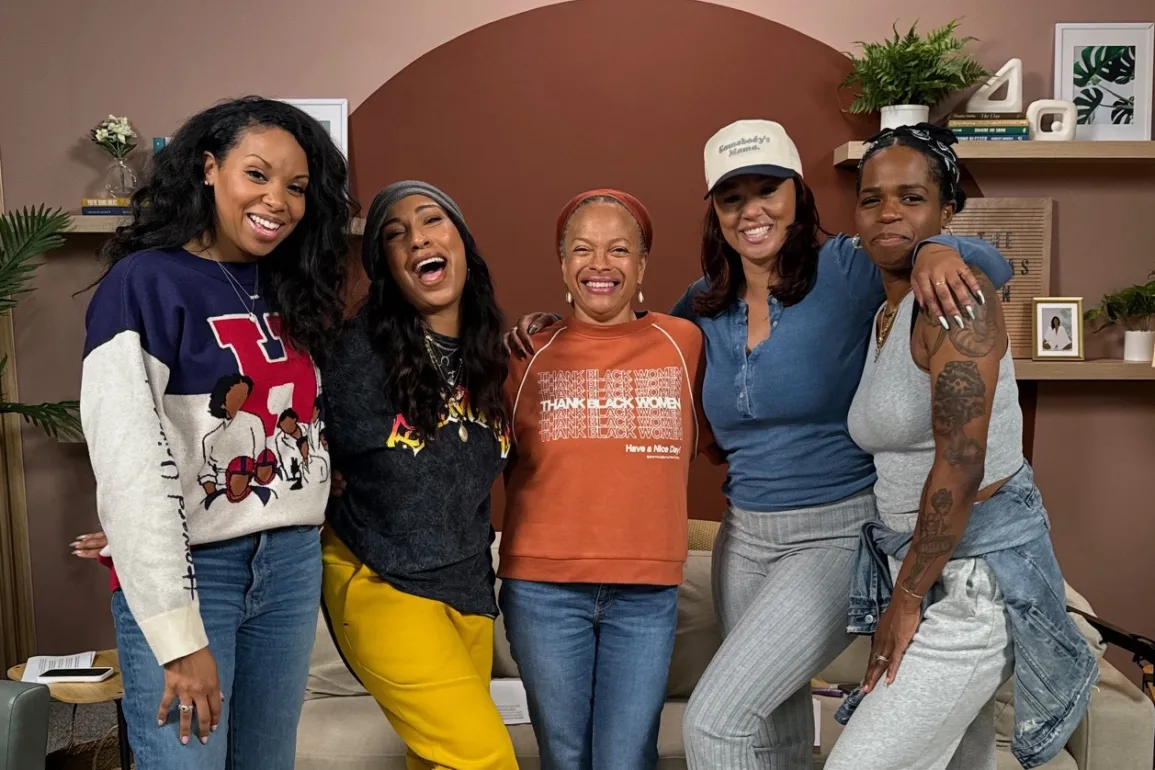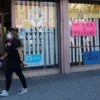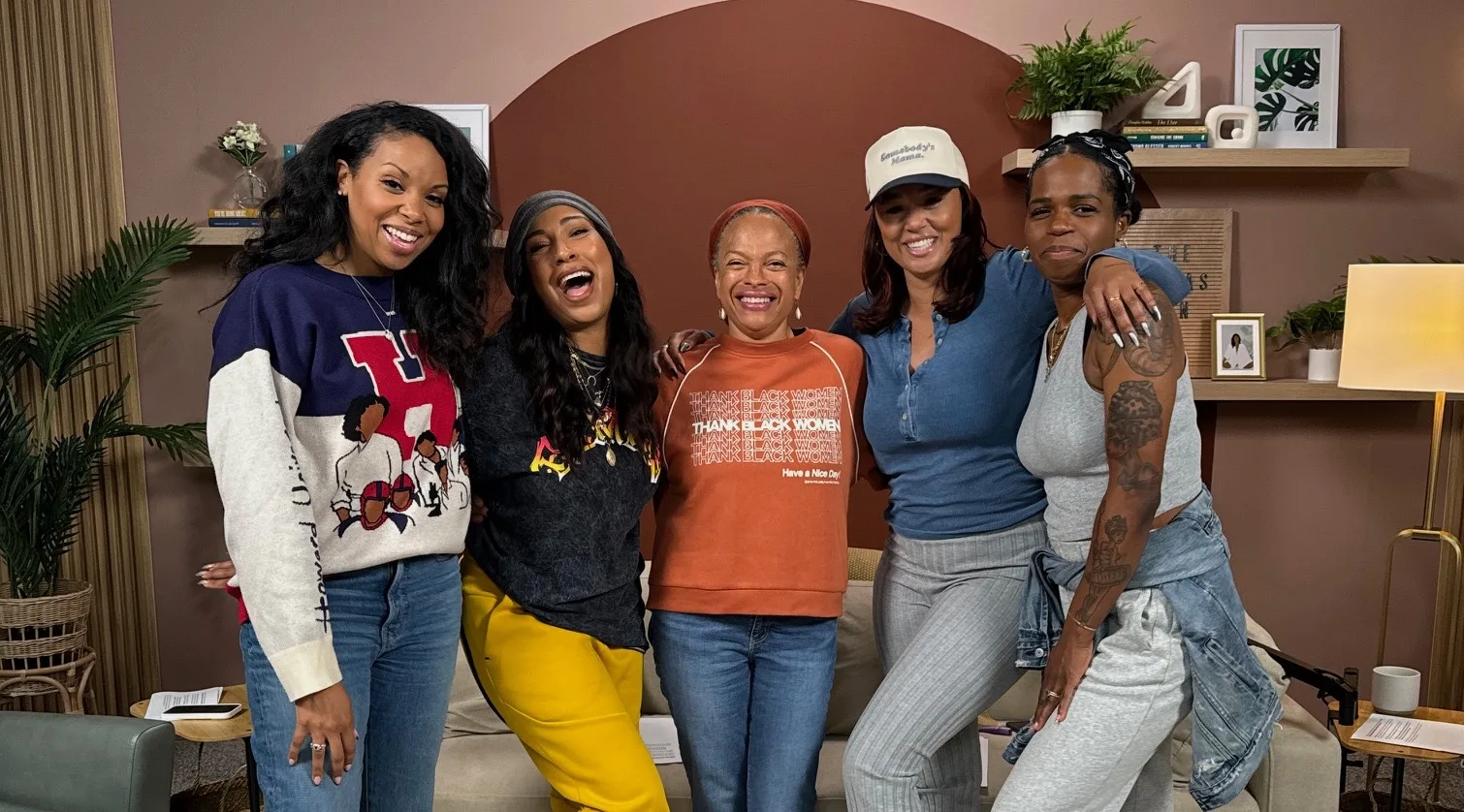
In recent years, there has been a growing awareness of the disparities in maternal health outcomes, particularly affecting Black women. According to statistics, Black mothers in the United States are three times more likely to die from pregnancy-related complications than white mothers. Through conversations and advocacy work, we can put a stop to this alarming trend and provide a safe space for Black birthing people to bring life into the world. One of the people committed to this cause is Kim Durdin.
Kim is a multifaceted force in maternal and infant health, blending her roles as a licensed midwife, lactation consultant, childbirth educator, and doula trainer with her experience as a mother of six and grandmother of five. For almost three decades, she has supported thousands of Black families across New York City, Washington D.C., and Los Angeles.
Kim co-founded Kindred Space L.A., South L.A.’s sole Black-owned birth center, alongside Allegra Hill, creating a vital hub for midwifery care, doula support, and education. Kim is also committed to addressing maternal and infant health disparities through her nonprofit, the Birthing People Foundation, which offers free and low-cost education and training to empower people of color in birth-related fields.
In the latest episode of Black Love’s “The Mama’s Den” podcast, which coincides with Black Maternal Health Week, hosts Melanie Fiona, Felicia La Tour, Ashley Chea, and Codie Elaine Oliver talk with Kim about all things Black maternal health. The episode dives into personal experiences, systemic challenges, actionable steps Black mothers and their families can take, and slew of resources including, Postpartum Support International, Nurse Family Partnership, and Momnibus Act. Check out the key takeaways from this week’s special episode and subscribe to “The Mama’s Den” podcast and Black Love’s YouTube channel to watch the full episode.
BlackLove.com Related Articles:
Healing My Heart and My Family: A Birth Mother’s Journey
Dear Single Mothers, I See You
Unveiling the Return of the “The Mama’s Den” Podcast
Hospital vs. Home Birth
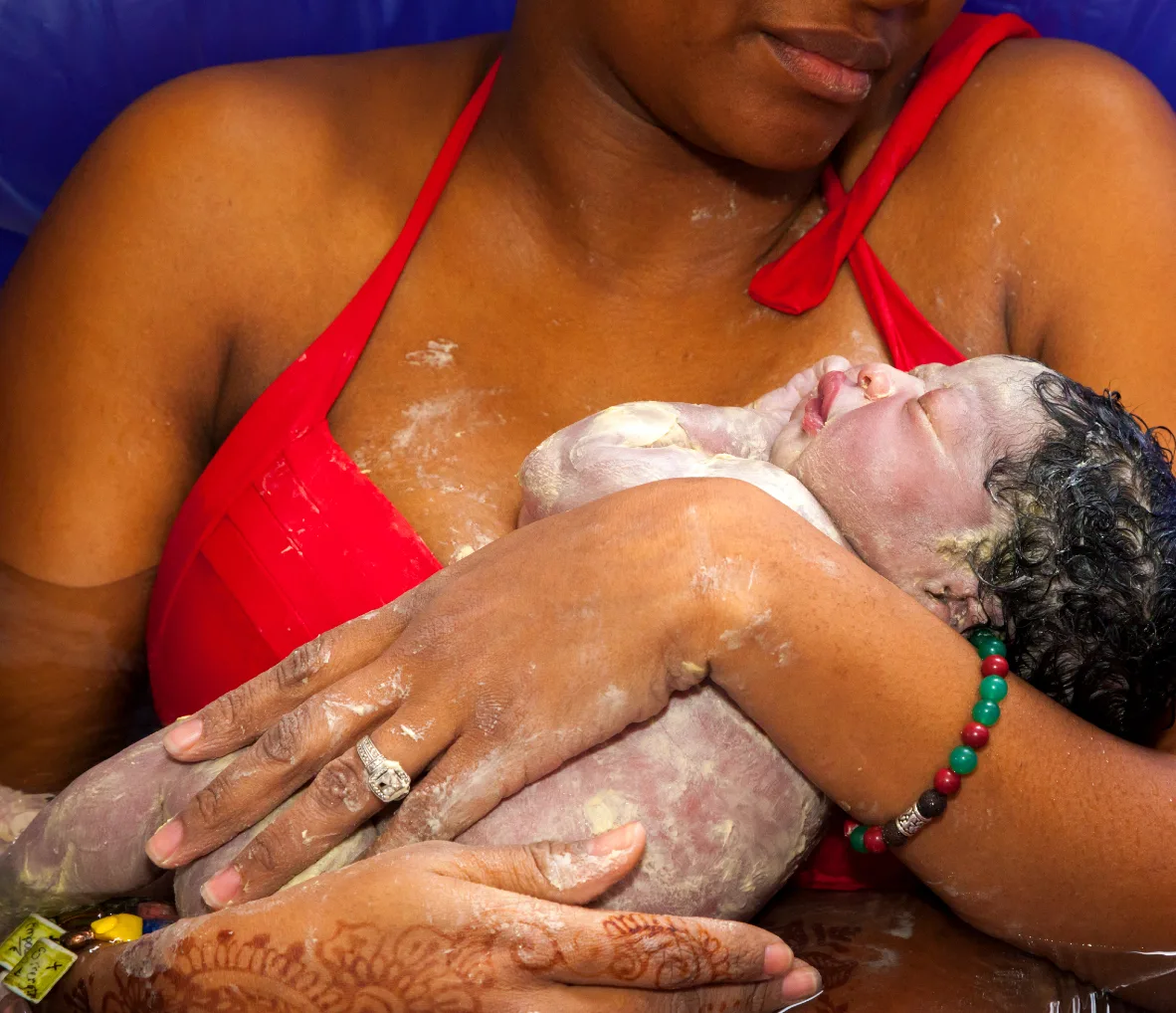
During the episode, Kim explores the misconceptions surrounding home births and highlights the importance of comprehensive prenatal and postpartum care. She emphasizes the conservative approach of midwives and the critical role of postpartum support in preventing maternal deaths, which often occur after childbirth.
“I think that’s one thing about home birth, or a hospital birth, that people have questions about,” Kim says during the episode. “What do you do when something goes wrong, or when something’s not right? We’re actually really conservative with out of hospital births. So it’s like, if things ain’t really lined up, then we’re gonna go in and [get you the care you need]. So many times, we only focus on the birth. ….But the postpartum is so important.”
Postpartum Care
During their discussion, Kim shares with the Mamas the alarming statistic that 50% of maternal deaths occur in the postpartum period, underscoring the urgent need for enhanced postpartum care and support. Kim stresses the importance of regular check-ups and monitoring during this vulnerable time, emphasizing midwifery care as a holistic and proactive approach.
“This is where we have to really talk about how we support people postpartum and there’s chatter about it in the mainstream world,” Kim explains. “It’s about people having more visits with their provider, with their doctor. So typically, you give birth, and then like six weeks later, you see your doctor. So much happens in those first six weeks.”
“Who’s checking your blood pressure? Unless you have somebody checking on you every couple of days, to see what’s happening [and] what your symptoms are. That’s how people fall through the cracks, with postpartum hemorrhage. With midwifery care, traditionally, we’re seeing people at least four times before six weeks. In our practice, we’re on a 24-hour call for all of our clients. We’re looking at all the clinical markers [including] mental health, because we know that’s huge. I don’t like to sound doom and gloom — there is change happening. I want us to remember that and not get overwhelmed by all the grief and the heaviness of the dysfunction.”
Finding the Right OBGYN
The hosts and Kim emphasize the significance of advocating for oneself and seeking out healthcare providers who prioritize patient-centered care. The group discusses the availability of resources for low-income individuals, including insurance coverage for doula services and community-based support programs.
“I think what’s hard sometimes is people feel like they don’t have options or choices,” Kim says. “I think that everybody — no matter if they are on county or state insurance, or they have private insurance, which to me shouldn’t be a thing. We should all have good insurance. But all that to say, some of my favorite physicians that I work with in the system, are taking Medi-Cal. They’re working in hospitals that are kind of in the hood, right? Because that’s where their calling is. And they’re providing amazing care. So if something doesn’t feel right, talk to somebody about it.”
“We do have a plethora of resources and things online now. One of the resources I give out all the time is Postpartum Support International, or PSI. You can call them and talk. They have a hotline to deal with any kind of mental health issues that are going on in the maternal health, perinatal maternal period, or even prenatal. I want to plug that Medi-Cal in California pays for your doula. We have Nurse Family Partnership in Los Angeles County. You can sign up for the Nurse Family Partnership, and you can have a nurse visit you.”
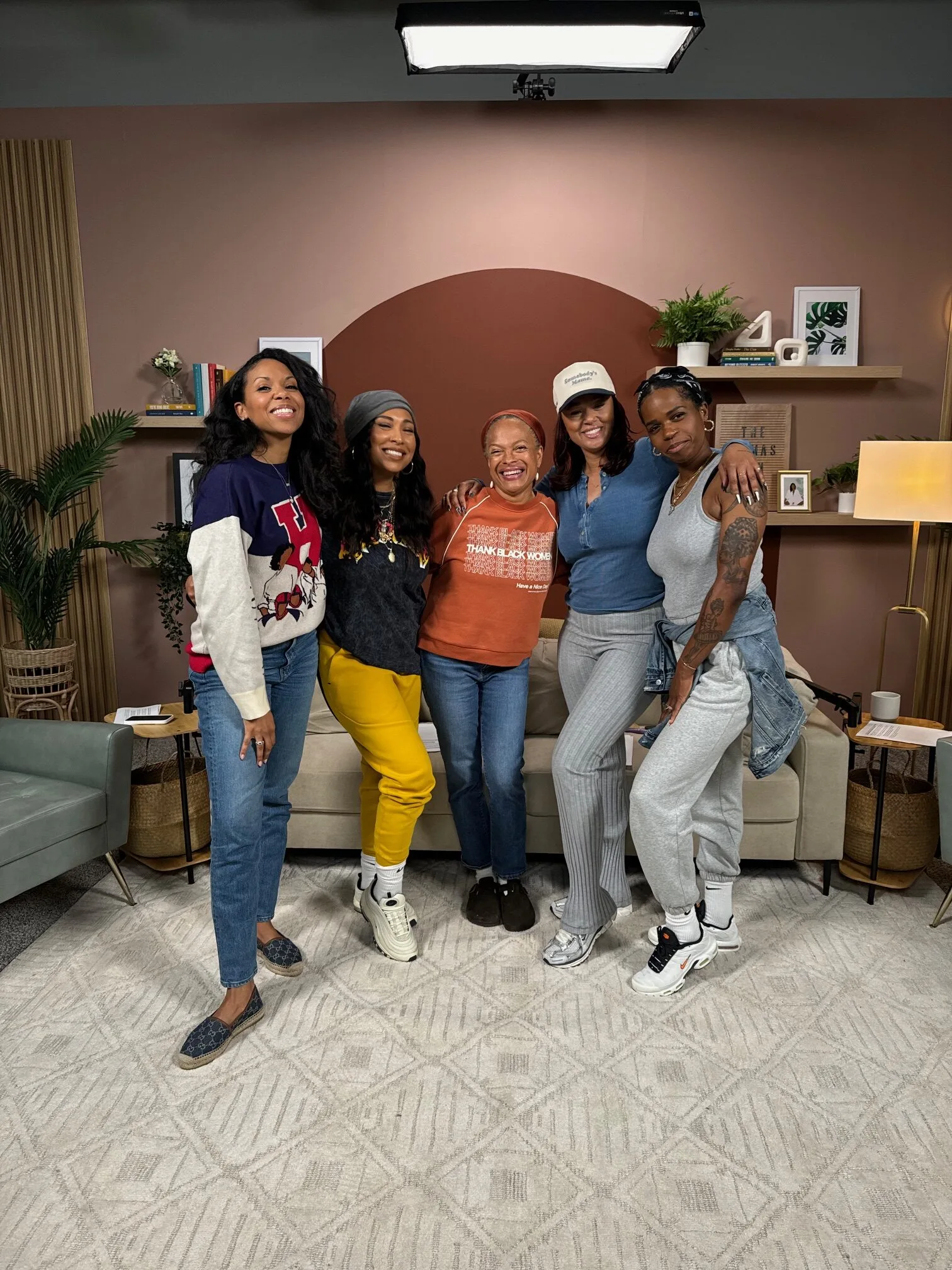
Advocacy Work
Kim highlights the importance of advocacy in improving maternal health outcomes, citing her involvement in organizations like the Maternal Mortality Review Board of California. The discussion touches upon legislative efforts, such as the Black Maternal Health Momnibus Act, aimed at addressing disparities and promoting equitable healthcare access.
“One thing that I didn’t really anticipate that would be a part of doing this work is how much advocacy work also has to be done,” Kim says. “I have to do [that work] side by side with taking care of my families. There are a plethora of organizations and collaborations that I get to participate in. One is the Maternal Mortality Review Board of California. Every state has a Maternal Mortality Review Board that reviews deaths of mothers. It is one of the most traumatic and rewarding things that I’ve ever been able to be a part of in the last three years.”
Black Maternal Health Week
When asked why Black Maternal Health Week exists, Kim unpacks the underlying social determinants of health that contribute to poor maternal outcomes among Black women. She emphasizes the role of systemic racism, lack of access to resources, and environmental factors in shaping maternal health disparities.
“If you’re on the outside looking in, you could say, ‘Those Black women just ain’t taking care of themselves,’” Kim explains. “But I’d like to remind folks that 83% of the maternal deaths that we’re seeing are preventable. Unfortunately, it gets twisted that we’re just sick, unhealthy people, but we’re not talking about the intersection of the social determinants of health that come into play. Maybe we aren’t eating well, but where are they gonna go grocery shopping if there’s no store nearby?”
“There’s all the different ways that were impacted in our lives; just the constant stress of being Black in America. What surprised Allegra and I, when we opened Kindred Space LA in the heart of South Los Angeles, is the level of challenge that folks are having to live a healthy lifestyle. This is not an easy place to live, this country. If we talk about [living] in the city, a lot of us aren’t living near parks. What about the air quality? The truth of the matter is these things impact us. These things impact our partners and our families. We’re coming from families that have been [traumatized historically]. People talk about the generational trauma, and that’s there. We [also] have our generational strengths, which is why we’re still here.”
Doula vs. Midwives
Kim distinguishes the roles of doulas and midwives, highlighting the complementary nature of their support services. While doulas provide emotional and physical support during childbirth, midwives offer comprehensive prenatal, labor, and postpartum care.
“A doula is amazing emotional, physical support,” Kim says. “They educate the pregnant person, the family, the client, have meetings with them prenatally and have meetings with them postpartum. I encourage all of our clients to have doulas because in that early labor part, the doula gets to go and be with the family. They’ll come with the moms if they are transferred to the hospital. If someone is birthing at a hospital, your doula can be there. So doulas are amazing. They can’t actually do medical care. That’s part of being a doula is that you’re not medical.”
Learn About Your Body and Preconception Health
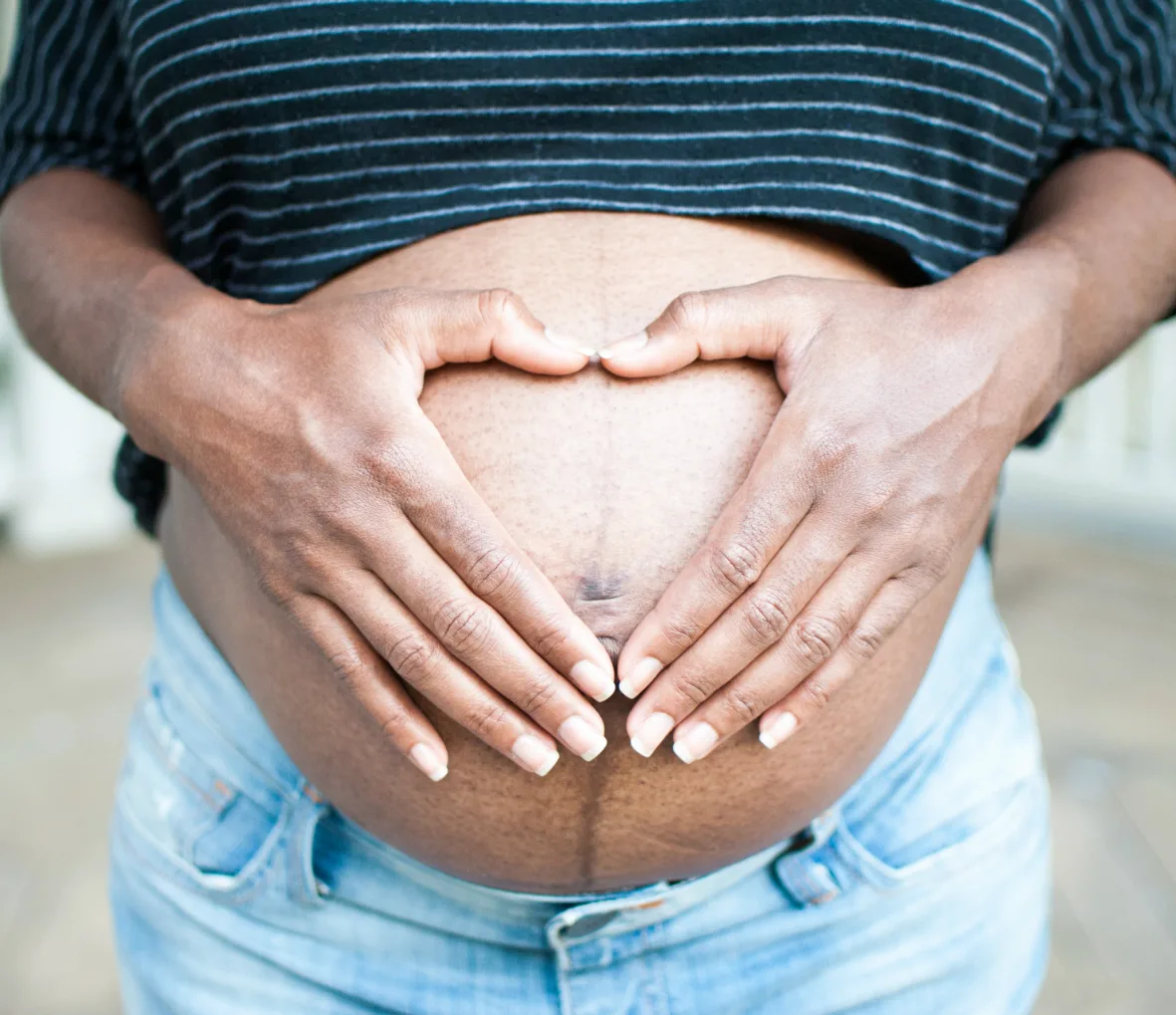
The episode also emphasizes the importance of preconception health and self-advocacy. Kim and the Mamas encourage all birthing people to educate themselves about their bodies, prioritize holistic well-being, and set intentions for a healthy pregnancy journey.
“Don’t expect someone else to teach you about your body,” Kim says. “We have information at our disposal to learn about your bodies. Learn how to really take care of your bodies. Set some intentions about a pregnancy. I think we need to kind of — especially for [Black women] — we need to think differently. We need to kind of take a step back, and just be really intentional about what we’re doing with our bodies.”
“Preconception health really is important. A lot of us are saying, ‘I want to have a baby.’ But what’s your health? What is going on in your body? What things do you need to set the stage for this healthy pregnancy and journey that you want to be on? It’s really the mind, body, and spirit. It’s more than just physical.”
Don’t Miss the Kim Durdin’s First Appearance on “The Mama’s Den” Entitled “Vaginas are Magical”


